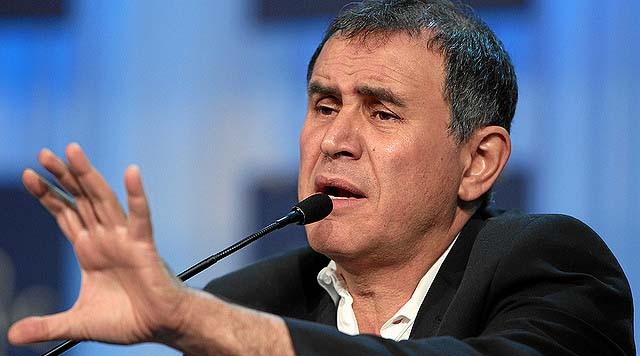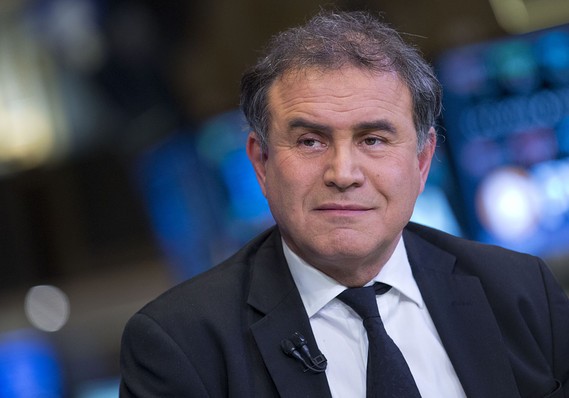Nouriel Roubini Unconventional Truth Six Years after the Crisis
Post on: 29 Август, 2015 No Comment

It has been over six years since the start of the global financial crisis. The unconventional expansionary monetary policies that have been pursued in its wake do not seem to have delivered on their objective of a robust global economic recovery. Yet the fears that such measures would lead to hyperinflation or the collapse of the US dollar have not been realized either.
Why has reality defied expectations? I discussed these issues with the distinguished economist Nouriel Roubini in a short, nine-minute video interview last month at the 2015 Middle East Investment Conference .
Roubini argues that those who feared hyperinflation from unconventional monetary policies confused cause and effect. Policies like quantitative easing (QE) and zero-interest rates were implemented to prevent deflation and a double-dip or triple-dip recession, he said. The doom-and-gloom pessimists who anticipated the rise of gold and cryptocurrencies have been proven wrong, he noted. Gold is trading well below its highs and bitcoin was the worst performing currency in 2014, falling by nearly 60%.
For Blogs and the Enterprise site
As for why these measures have failed to create robust economic growth as expected in different parts of the world, Roubini points to the wrong policy mix, with too much reliance on monetary expansion and not enough on fiscal stimulus. He thinks that the worlds supply of goods and services is greater than demand. Monetary policy alone can only do so much to boost aggregate demand, and government spending, particularly productive infrastructure outlays, with the obvious exception of China, could have made a difference in spurring a global economic recovery.
If gold and cryptocurrencies have not lived up to the expectations of the gold bugs, they havent created large-scale externalities either. But might unconventional monetary policy hold some of the blame for rising inequality? When I asked him this question, Roubini responded that increased inequality is caused by a number of factors unrelated to these measures. He points to technological innovation, trade, globalization, and a winner-take-all superstar effect. Unconventional monetary policies have probably played a part in rising inequality through asset price inflation, he says. But things would have been much worse for those on the middle and lower rungs of the economic ladder in the absence of these policies, which may have helped prevent a potential double-dip or triple-dip recession.

In addition to sitting for this interview, Roubini delivered the closing keynote address at the 2015 Middle East Investment Conference. Coverage of that presentation can be found in Roubini: Robust US Growth, Bumpy Landing for China, and No Grexit.
If you liked this post, dont forget to subscribe to the Enterprising Investor .
All posts are the opinion of the author. As such, they should not be construed as investment advice, nor do the opinions expressed necessarily reflect the views of CFA Institute or the author’s employer.














